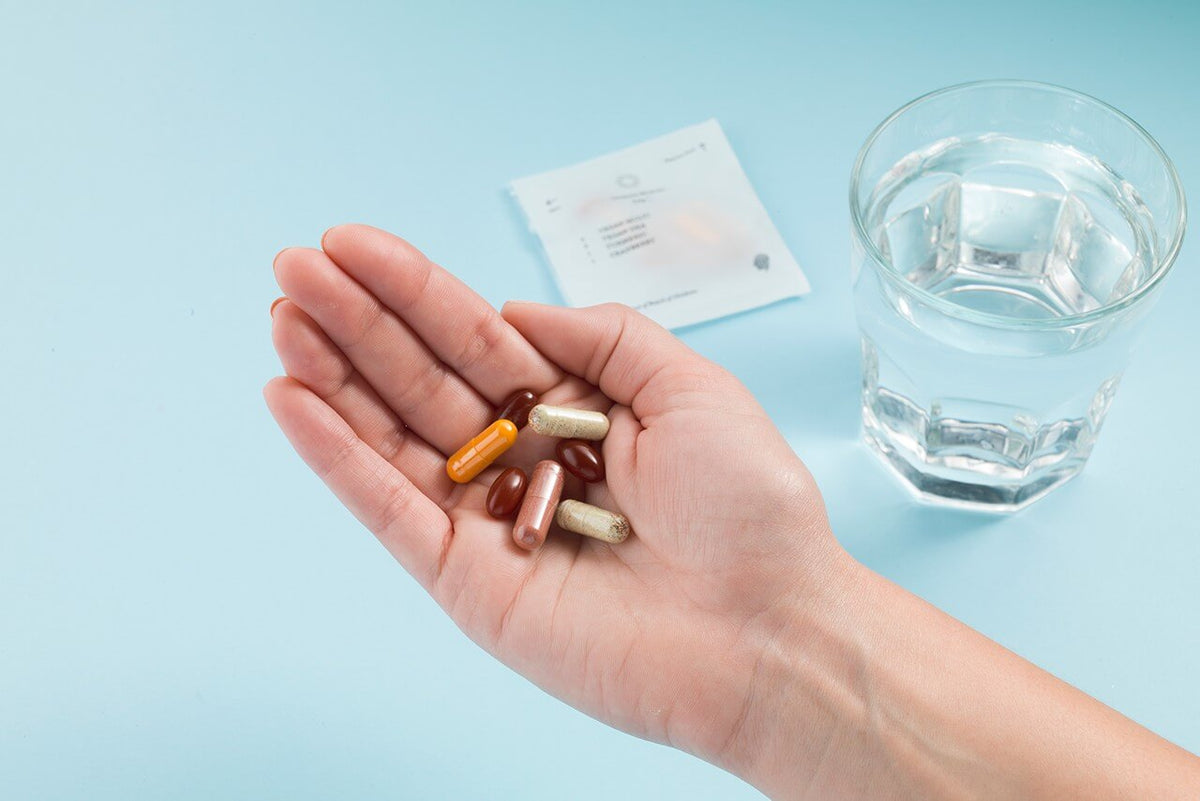
Recovering from surgery can be a dreadful period since many patients are no longer able to perform their normal activities. However, consuming vitamins, minerals, and nutrients can help aid in the recovery process and allow patients to return to their normal lifestyle faster.* Many post-surgery supplements can promote wound healing, enhance immunity, and reduce bruising, swelling, and inflammation surrounding the incision area.*
These essential nutrients not only promote proper healing after surgery but can also deliver long-term health.* However, these supplements must be consumed judiciously because some supplements can be contraindicated with prescription medications. Watch out for medicines and supplements like aspirin, borage seed oil, curcumin, evening primrose oil, flaxseed oil, fish oil, garlic, ginger, ginseng, and green tea; which contain anticoagulant effects that can affect your recovery phase.
Below, we will cover the 10 post-surgery supplements that you may want to know about before your surgery date.
Arnica is a herb that is mainly grown in Siberia and central Europe, as well as in some areas in North America. The flowers of the plant can be used for medicinal purposes. Arnica is most commonly used for pain caused by osteoarthritis, sore throat, surgery, and other conditions. This medicinal plant also helps reduce infections, bleeding, bruising, and swelling after surgery.
The extract can also be used to alleviate soft tissue trauma from surgery.
Fish oil has proven to be effective in reducing inflammation after surgery. During 2012, a study closely examined the impact of fish oil administration on postoperative patients and concluded that 33.3% of these patients showed reduced liver dysfunction caused by inflammation and 27.8% of them had fewer infections. Furthermore, the patients who were supplemented with fish oil exhibited less pro-inflammatory molecules.
Fish oil carries no side effects if consumed properly. However, when taken in excess it can cause vitamin A toxicity since fish oil already contains vitamin A. This toxicity can lead to fragile bones and liver malfunction. On the other hand, fish oil continues to be considered a safe and well-tolerated supplement.
Arginine is an amino acid that has a role in immune function, infection prevention, and tissue repair after injury, including surgery. Arginine appears to improve wound healing by increasing protein synthesis. After surgery, the recommended daily dose of Arginine is 12.5 to 18.75 grams.
Almost all post-op patients are placed on antibiotics to prevent the risk of infections. However, this antibiotic treatment can affect the gut flora and may create fungal disorders, digestive problems, and diarrhea. Probiotics have been used to help neutralize these unwanted problems.
Turmeric contains antioxidant properties that help decrease inflammation and oxidation. It can also lower the body response to cutaneous wounds and allow wounds to heal faster. Studies have also proven that turmeric positively affects the production and restoration of tissue cells and collagen.
According to Healthline, Quercetin is an anti-inflammatory supplement that belongs to a group of plant compounds called flavonoids. Flavonoids can be found in vegetables, fruits, grains, tea, and even wine. The beneficial effects of these components are found in their ability to function as antioxidants inside your body. Quercetin can be taken in 1000mg doses up to three times daily to reduce swelling and development of hypertrophic scars.
Vitamin A plays an important role during the healing process since it activates the production of connective tissue, including collagen, and helps new blood vessels grow. Vitamin A also reduces the risk of infections by stimulating the body’s immune system.
Vitamin C plays an essential role in collagen formation and strengthening the immune system. Without proper amounts of vitamin C, good healing is not possible. Vitamin C is required by the body to make collagen, the connective tissue in the skin that helps to heal. To help with wound healing take 300mg-1g of vitamin C daily.
Zinc contains enzymes that support the immune system and helps reduce inflammation, bacterial growth, and scar tissue creation. Even a mild deficiency of zinc can prevent optimal recovery from damaged tissues. Zinc can also help with proper metabolism, balancing blood sugar, and increasing sensory perception.
Bromelain is an enzyme extract derived from pineapples. This enzyme is used to reduce pain, inflammation, bruising, and tenderness. Bromelain should be taken three times daily while on an empty stomach and in doses of 1000-1500 mg. You can discontinue this supplement after two weeks of consistently taking it.
Many patients are interested in taking vitamins and supplements after their surgery, but this may not be necessary for everyone. In fact, people who already eat a well-balanced diet may not need to take additional supplements after surgery. There are certain vitamins and supplements that may interact with medications prescribed by your physician. Make sure you consult with your surgeon about any supplements you are planning to take in addition to prescribed medications.
On the contrary, malnutrition and micronutrient deficiencies can have a negative impact on the body as it recovers from surgery. During this time the body needs nutrients that will help repair tissues and heal post surgery wounds. The main goal for adequate wound healing is to optimize recovery in the shortest time, with minimal discomfort, scarring, and pain for the patient.
For those post-op patients struggling with nutrition deficiency, we recommend natural supplements such as WoundVite that help support wound healing, tissue repair, and scar reduction.*
*These statements have not been evaluated by the Food and Drug Administration. These products are not intended to diagnose, treat, cure or prevent any disease.